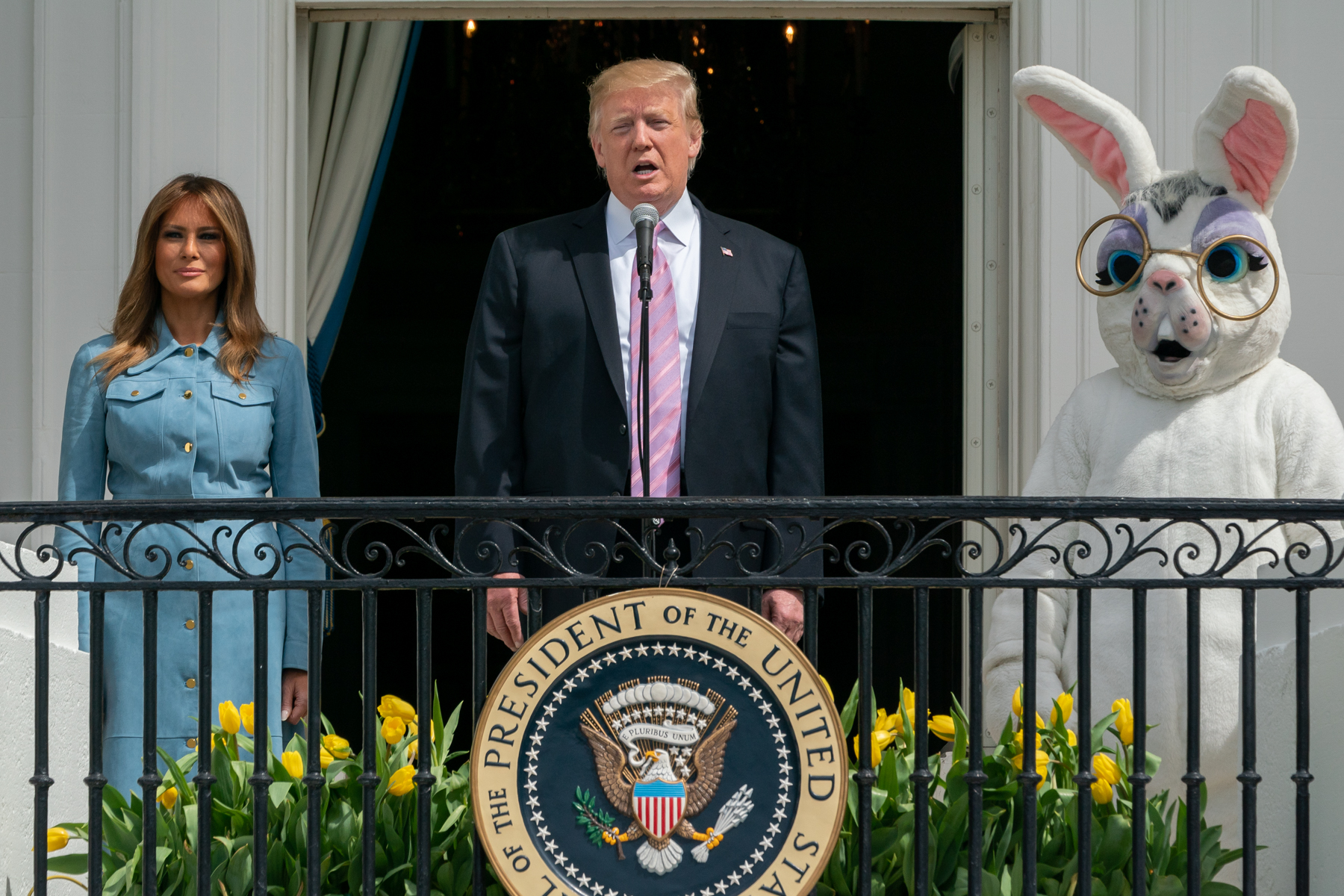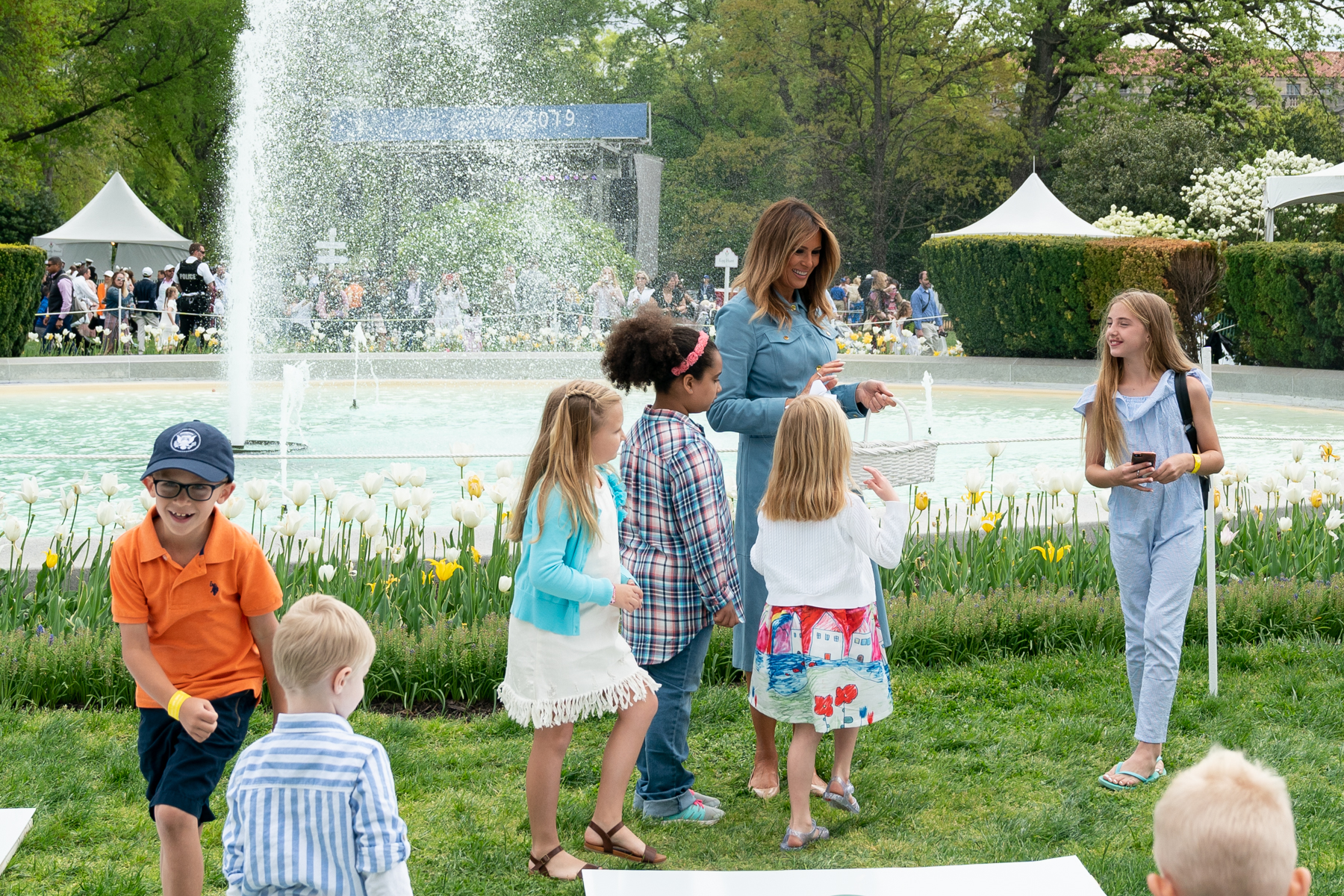The White House Easter Egg Roll

History
The White House Easter Egg Roll officially dates back to 1878 and the presidency of Rutherford B. Hayes, but first-hand accounts suggest that informal festivities began with egg-rolling parties under President Abraham Lincoln. Starting in the 1870s, Easter Monday celebrations on the U.S. Capitol’s west grounds grew so popular that President Ulysses S. Grant signed a bill that banned the rolling of eggs on Capitol grounds, citing landscape concerns.
In 1878, a group of bold children walked up to the White House gate, hoping to be allowed to play egg-rolling games there. President Hayes told his guards to let the children enter, and soon Easter Monday on the White House grounds became an annual tradition. President Benjamin Harrison added music to the festivities in 1889 with the United States Marine Band.
Egg roll attendance grew so popular that the number of guests had to be limited, and in 1939, the Secret Service had to go so far as shutting down a “racket” of children trying to sneak adults into the event for a fee.
The planning of the egg roll traditionally falls on first ladies, each incorporating her own tastes and interests to the event. First Lady Lou Hoover had part of the South Lawn roped off for folk dancing. First Lady Pat Nixon introduced the traditional egg roll races.
Because of World War I and World War II, there were no egg rolls from 1917 to 1920 and from 1943 to 1945. Food conservation and then construction on the White House prevented any celebrations from 1946 to 1952, as well. Fortunately, President Dwight D. Eisenhower reinstated the tradition in 1953.
The custom to receive a wooden Easter egg when leaving the event began in 1981 — an idea instituted by First Lady Nancy Reagan — and became a keepsake cherished by guests that donned the signature of the President and First Lady.

Ticket Lottery
As in years past, the Easter Egg Roll lottery provides a process for the inclusion of guests from all 56 states and territories. White House Easter Egg Roll tickets are free and will be made available via an online lottery.
To enter, visit Recreation.Gov and create an account. The 2025 lottery page will have a list of time preferences to choose from.
Entrants must specify the number of adults/children on the ticket request screen along with their time preference. Choose multiple time slots if you are flexible.
There must be at least one child (age 12 and under) and one adult to apply with a maximum of two adults per application. Each household will be limited to one lottery application for a maximum of six tickets.
Email notifications from Recreation.gov will be sent to the lottery winners with instructions for obtaining tickets.
Volunteers
The White House Easter Egg Roll would not be possible without the help of hundreds of dedicated volunteers! If you are interested in volunteering at the 2025 event, please apply at the link below by March 19, 2025.
Official Easter Egg Set
Each year, souvenir wooden eggs are given to children attending the Easter Egg Roll at the White House. These commemorative eggs are available for purchase as a 5-piece set at the White House Historical Association shop, online or in-person.
